Have you ever experienced the frustration of washing your hair diligently, only to find it greasy shortly afterward? It can be incredibly annoying, leaving you wondering what on earth went wrong! Well, fear not! We at Top 5 Listicle are here to uncover the mystery behind why your hair may still be greasy after washing, and we have found some solutions to help you achieve those luscious, fresh locks you’ve been longing for.
Many women used to think greasy hair was the norm, but recent studies have revealed that more people are experiencing dry hair.
Experts suggest that if you don’t wash your hair regularly, it will become dried and brittle, with a lack of shine and volume. To prevent this from happening, it’s best to cleanse your scalp every day: shampooing twice and conditioning once or twice a week should keep your hair healthy.
Table of Contents
6 Reasons For Greasy Hair After Washing?
1. Overactive Sebacious Glands
Let us start with the root of your problem – quite literally!Your scalp has these tiny glands called sebaceous glands. They produce natural oils called sebum which when produce more grease than normal, can leave you with oily hair. Sebum is a lubricant that helps keep the skin and hair soft and flexible.
But this isn’t healthy for your hair: the excess oil will make it look dull, lifeless and heavy. This is why having greasy hair isn’t ideal, as it makes your hair look and feels greasy.
Severely greasy hair usually means you have a condition called seborrheic dermatitis, or cradle cap, which often appears in babies. This results in unpleasant, yellowish scales and white or yellowish crusts on the scalp, accompanied by very dry hair that often breaks easily.Seborrheic dermatitis is often caused by yeast and fungus growth on the skin and oily scalp.
2. Hormonal Changes
Hormones can wreak havoc on our bodies. Hormonal imbalances, such as those during puberty, pregnancy, or certain medical conditions, can affect the activity of your sebaceous glands. Fluctuations in hormones can cause your scalp to produce more oil, resulting in greasy hair.
This is the reason why certain women have greasy hair at a certain time of the month when their hormones are out of balance.
When this occurs regularly, it’s medically known as hyper seborrhea: if your hormones are out of balance, you should consult your doctor as this may be a sign of an underlying health condition.
3. Wrong Technique Can Be The Reason
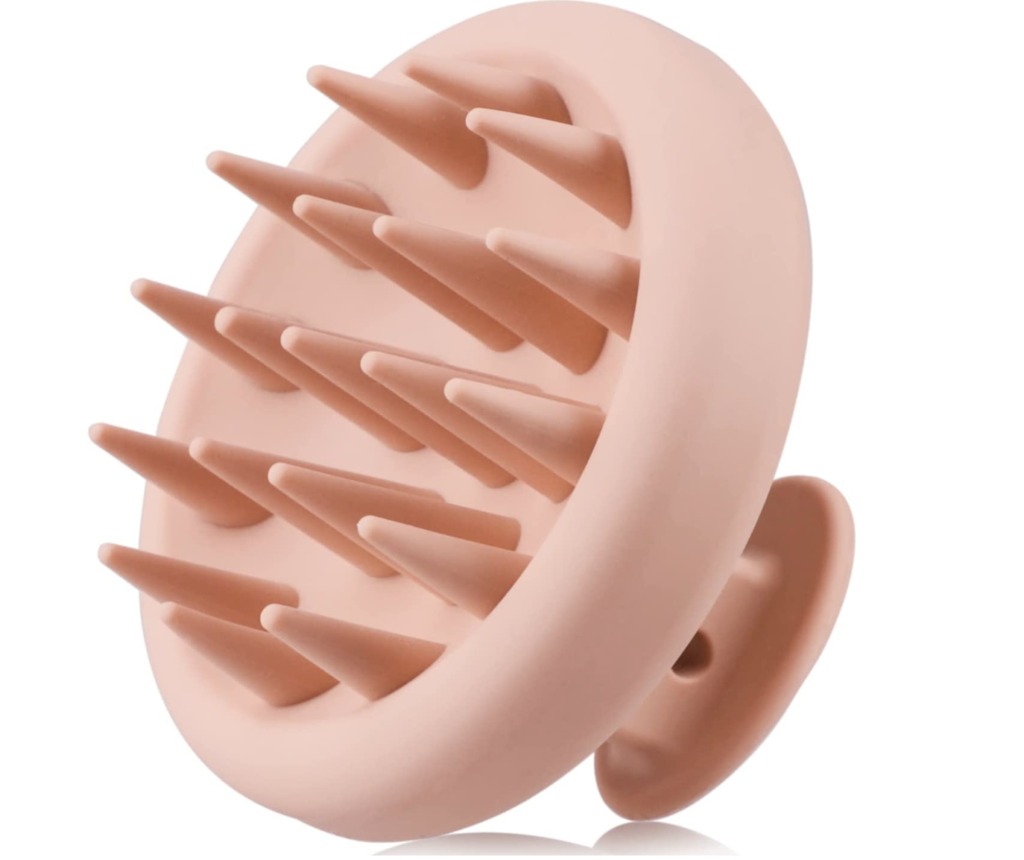
Using the wrong shampoo and conditioner for your hair type or not rinsing them out properly can contribute to the greasiness. Ensure you’re using products suitable for your hair and lather up, paying extra attention to your scalp. A gentle massage during the washing process can help remove excess oil and grime effectively.
Try using a hair wash scrubber to rinse off shampoo and do a deep cleanse of scalp.
4. Frequency of Hair Wash
When it comes to washing your hair, striking the right balance is crucial. Washing too frequently can strip away the natural oils your scalp produces, causing it to compensate by producing more sebum. On the other hand, washing infrequently can allow oil and dirt to accumulate, leaving your hair looking greasy.
In majority of people, washing infrequently is the main reason for greasy hair. They don’t wash their hair often enough. They wait until their hair starts to feel heavy and dirty before washing it with shampoo. This instead traps dirt and oil under the hair.
5. Product Overload
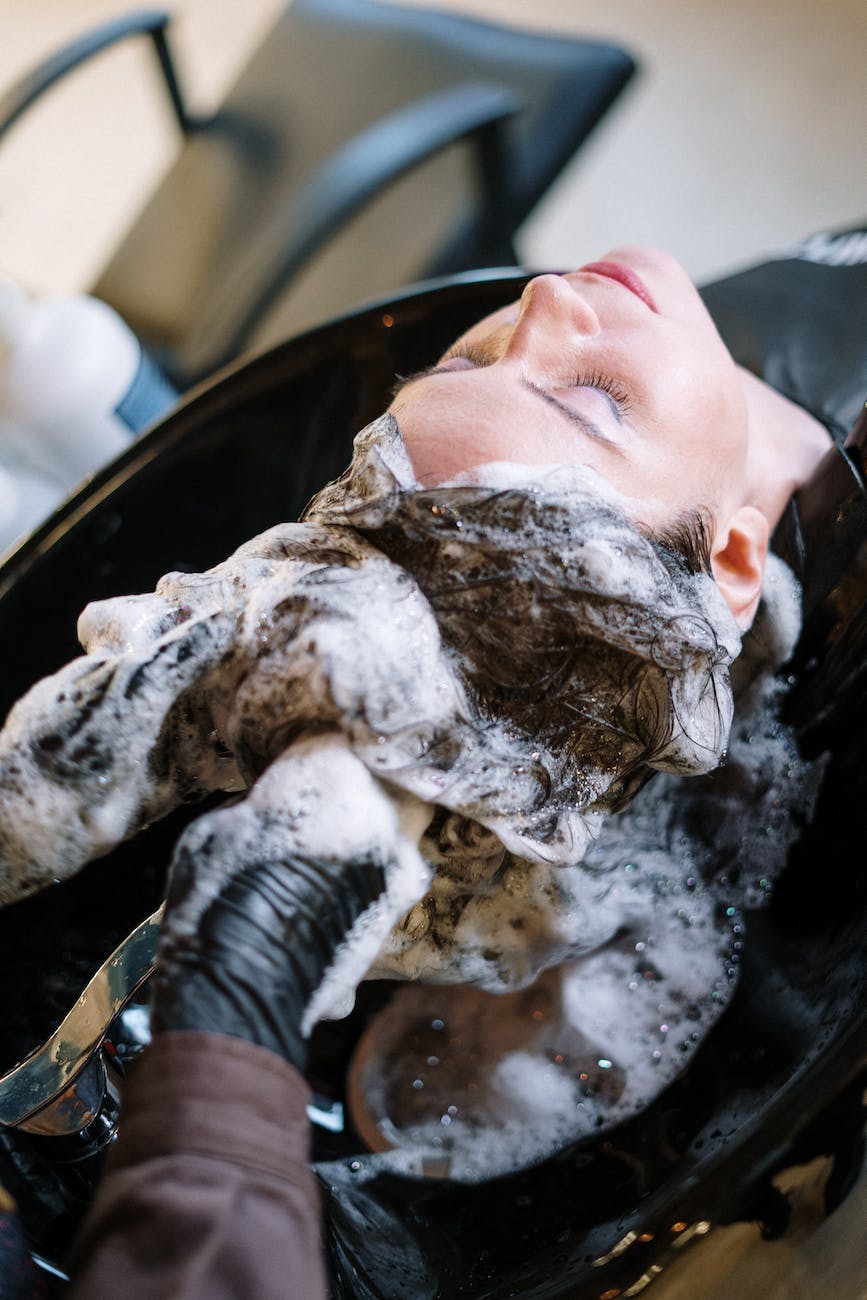
Are you a fan of styling products? While they can work wonders for your hair, excessive use can lead to product buildup. Over time, this buildup traps oil, making your hair appear greasy even after washing. Be mindful of the amount and frequency of product application, and consider clarifying shampoos occasionally to remove any residue.
Hair naturally absorbs the product, so when you use a heavy product on it, it will continue to absorb that same amount when dry. When your hair is dry and you brush it, the product will not come out as easily as it does when your hair is wet.
On the other hand, if you use a light product in your hair, then wash it out completely when wet and use very little of it when dry, then your hair will continue to feel light even after air drying.
If you have damaged hair, it will not absorb the product as easily. You need to make sure you only use a tiny amount of your product and let it sit on your hair for a while to help restore the condition of your hair so that the product will be able to work its magic.
If you feel like your hair is starting to weigh down too much, try using fewer products or switching products with lighter textures and consistency.
6. Lifestyle
Believe it or not, your diet and lifestyle can impact the health of your hair. Consuming a diet high in greasy or oily foods may contribute to excess sebum production. Stress and certain medications can also affect oil production. So, maintaining a well-balanced diet and managing stress levels can positively influence the condition of your hair.
Yoga and meditation are two great ways to manage stress. If you are looking for a natural herb to support your nervous system, try Ashwagandha.
PIN AND SAVE ME
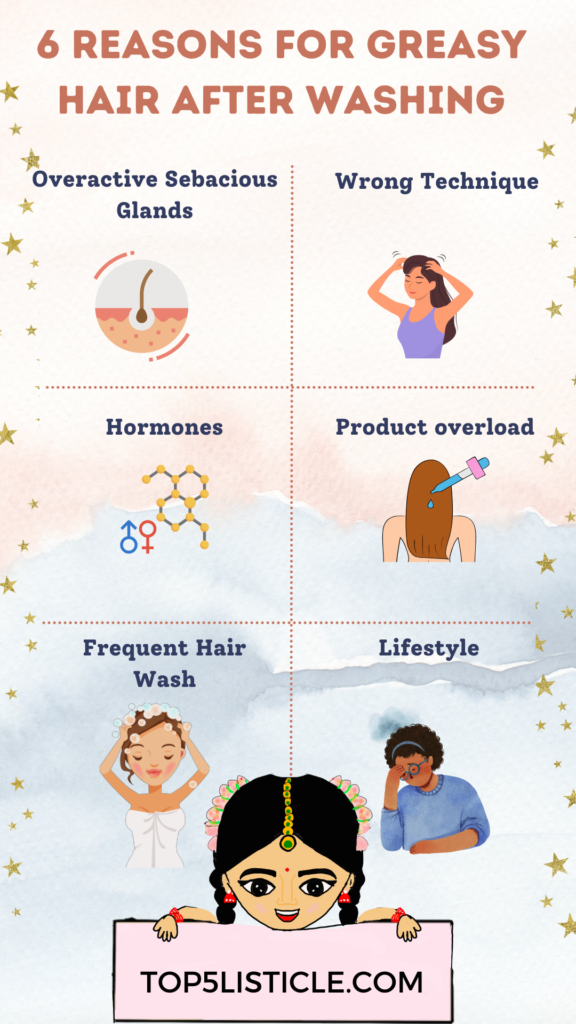
Why Does My Hair Feel Waxy After Drying?
If you ever notice your hair feeling a bit more stiff and waxy than usual, there may be an explanation for this.
More often than not, the problem will be one of these two things: too much product in your hair or improper drying technique. If your product is too heavy for your hair type, it will weigh down the strands and leave them feeling limp and waxy.
It can also make your hair look flat and lifeless. The hair you see in commercials is not made of just one day’s worth of hair. It takes several days to shoot a commercial, so they have to use plenty of hair products and styling aids which gives it more volume and shine.
Does Argon Oil Shampoo Make Hair Greasy?
Argan oil shampoo is a type of hair care product. Hair products such as shampoos and conditioners are used to clean, moisturize, and style hair. The shampoo is made with many different ingredients that are designed for different types of hair. Argan oil shampoo contains oils from the argan tree.
Argan tree oils have properties that make them beneficial for treating dry skin, irritated scalps, and damaged cuticles, nails, and knees.
How To Treat Oily Hair After Washing?
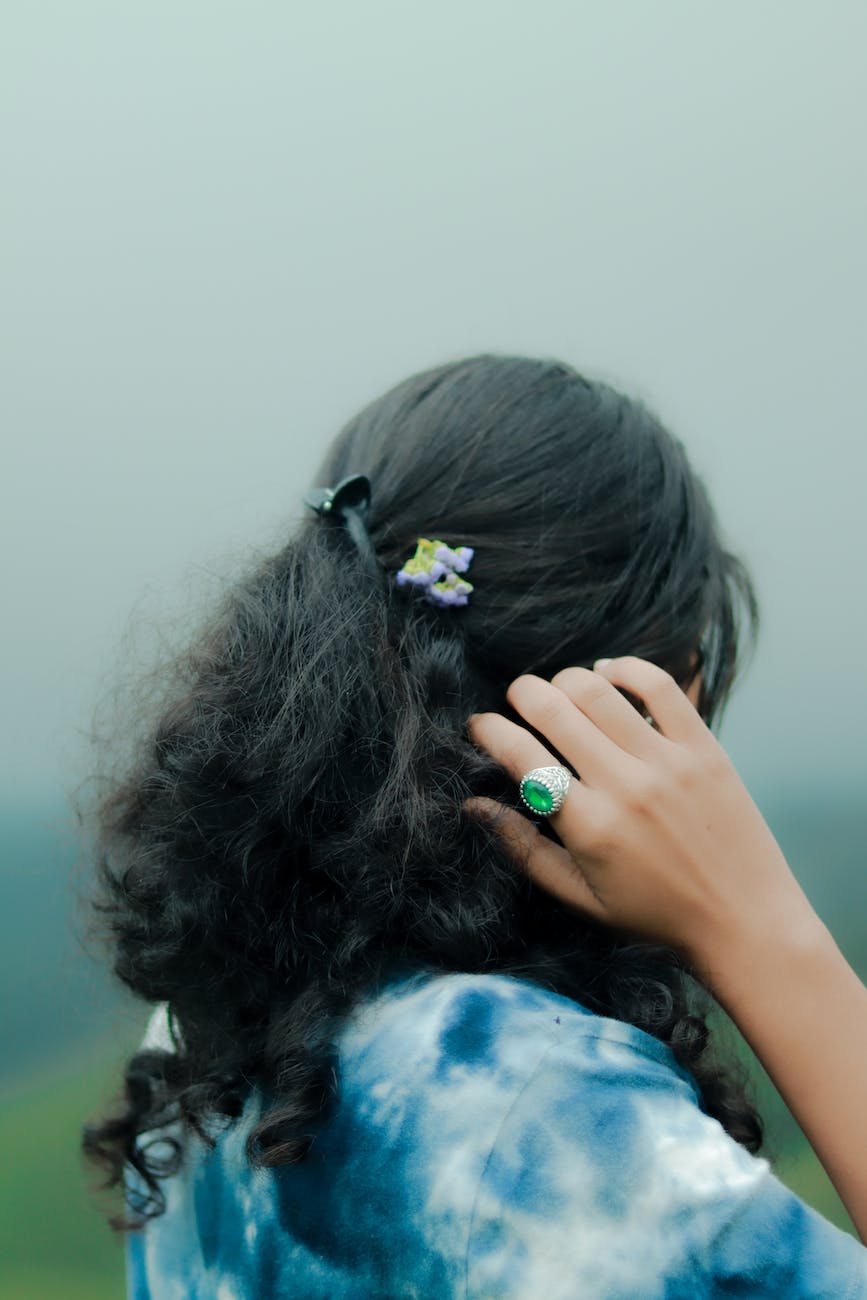
Oily hair is the bane of many people with naturally oily scalps and chemically treated hair. If your shampoo routine is not getting the oiliness under control, you’re going to need a more potent solution. Follow these five steps to combat scalp oils and achieve shine-free locks every day.
1. Use the Right Shampoo
Shampoo formulas have evolved. A few decades ago, detergents were used to strip oils from hair. Today, shampoos are more gentle and leave more oils in your hair than ever before. However, some shampoos can still be too harsh for oily hair and lead to dryness, breakage and scalp buildup.
Look for a shampoo that contains gentle surfactants, such as Lauryl Glucoside or Sodium Cocoyl Glutamate and avoid those that use Sodium Lauryl Sulfate. Also, look for keywords like “clarifying,” “oil-control,” or “volumizing” on the shampoo bottle.
If you’re unsure about which shampoos are best for oily hair, consult with your hairstylist to help you find the ideal shampoo for your needs.
2. Use the Right Conditioner
Your hairstylist may recommend using a special conditioner formulated to control scalp oils and sheen on oily hair. However, more and more people are turning to lightweight conditioners and know-how. These conditions are designed to control oil without being too harsh on the hair.
Your conditioner can contain ingredients such as humectants like Glycerin or Silicones that help seal moisture and provide shine-free locks on your hair. Additionally, some conditioners can contain natural oils which will leave your hair shiny and silky.
3. Avoid Over-Touching
Constantly touching your hair can transfer oils from your hands to your strands, making them appear greasier. Try to minimize touching or playing with your hair throughout the day.
4. Consult a Professional
If you’ve tried various remedies and are still struggling with excessively oily hair, it may be helpful to seek advice from a professional hairstylist or a dermatologist. They can assess your specific situation and provide personalized recommendations and solutions.
Solutions for persistent greasiness after washing
The underlying reason for greasy hair may affect the course of treatment. It may be helpful to control excessive oil production or alter hair care routines.
It may be necessary to wash your hair every day to get rid of excess oil if you have straight, fine hair that gets greasy easily. A clarifying shampoo might occasionally aid to get rid of extra buildup and residue.
Green tea-infused cosmetics may aid in managing oily hair. In a 2016 study, 20 healthy volunteers’ oily hair was treated with a green tea hair tonic.
Compared to the placebo and tonic foundation, the green tea hair tonic dramatically reduced oil on the scalp after 28 days of treatment.
The benefits could be attributed to green tea’s androgen-regulating characteristics.
Anionic surfactant-containing shampoos may be advantageous for some people. Surfactants aid in the binding of water and sebum, enabling shampoo and water to take away excess oil when shampooing hair. Examples comprise: Sarcosines sulfosuccinateslaureth sulphate and lauryl sulphate
Anionics can also dry out hair, which raises the possibility of breakage. A milder shampoo may be necessary for those with dry, easily damaged, or coloured hair.
Tips for managing oily hair post-shower
If your hair is greasy, you might have an underlying medical condition such as an overactive sebaceous gland or diabetes. You should see your doctor if you suspect this might be the case. Otherwise, here are five ways to get rid of greasy hair:
1. Wash your hair with a clarifying shampoo or strong shampoo.
2. Apply dry shampoo to the roots.
3. Work these three tips into your everyday routine: brush and comb your hair often and limit wash days to every other day.
4. When you shampoo, take baby shampoo in handfuls or spray a cup of vinegar onto your scalp. Wait at least one minute before rinsing. You can repeat the procedure as many times as needed.
5. Use a dry shampoo or baby powder on the roots.
Does Moroccan oil shampoo make your hair greasy?
While many people use a deep conditioner after washing their hair, the most popular product is Moroccan oil shampoo. The soap’s ingredients boast that it is made in Morocco with a mixture of oils and herbs to nurture and repair the scalp.
Some say that this can lead to an oily scalp if you don’t wash it out properly. So should you use Moroccan soap? Let’s find out…
The Moroccan shampoo is made with a mixture of argan oil, avocado butter, almond oil, lavender oil, jojoba oil and more. The use of these ingredients is supposed to make your hair shiny and soft to the touch. However, the many oils can also be a greasy mess if you don’t use them properly.
Some say that this oil shampoo formula is a lot of oil and could leave your hair oily. They even say that the soap can give you an “oily head” if you wash your hair with it too much.
On the other hand, many people who have used this soap have reported using less shampoo than normal or not using anything at all. They claim not to have greasy hair after using it and to cleanse their scalp by rinsing their hair with water.
Frequently Asked Questions
1. Why does my hair feel waxy in the back?
Often, your hair will feel sticky and the strands will become brittle. There isn’t anything wrong with your hair; it’s just wax buildup caused by your scalp drying out. You can help prevent this from happening by making sure you moisturize once a day. This would be helpful to do in the morning after showering, before bedtime or when taking a bath.
Also, make sure that you are using sulfate-free shampoo and conditioner so that they don’t strip away any natural oils on your scalp. Another way to combat this problem would be by using a deep conditioner once a week.
This can help keep your hair looking and feeling soft and healthy. Make sure you are combing your hair in the right direction as well.
You need to comb from the ends towards the roots, without twisting or pinching; otherwise, there may be clumps of wax that will make your hair feel dry. Waxing is not a permanent solution for hair removal.
2. How often should I wash my greasy hair?
If you have very oily hair, you might consider using a gentle, sulfate-free shampoo designed specifically for oily or greasy hair. These shampoos help remove excess oil without stripping away too much moisture. Focus the shampoo application on the scalp, where oil tends to accumulate the most.
Some recommended shampoos for oily hair are given below:
3. Are there any specific hair care products or ingredients to avoid for greasy hair?
As already mentioned above, avoid heavy, oil-based hair care products and ingredients like silicones, sulfates, and heavy conditioners that can weigh down the hair and exacerbate greasiness. Look for lightweight, oil-free formulas and clarifying shampoos to help control oil and add volume.
4. What are some product recommendations for clarifying shampoos in Singapore?
You can choose some best-selling shampoos suiting Singapore weather like Nard Deep Cleansing shampoo, Kerastase Oily Scalp Balancing Shampoo, Kundal Deep Cleanse Shampoo.
Conclusion
If you’re consistently experiencing greasy hair despite following proper hair care practices, it may be helpful to consult a dermatologist or a professional hairstylist. They can assess your specific situation and provide tailored advice and recommendations.
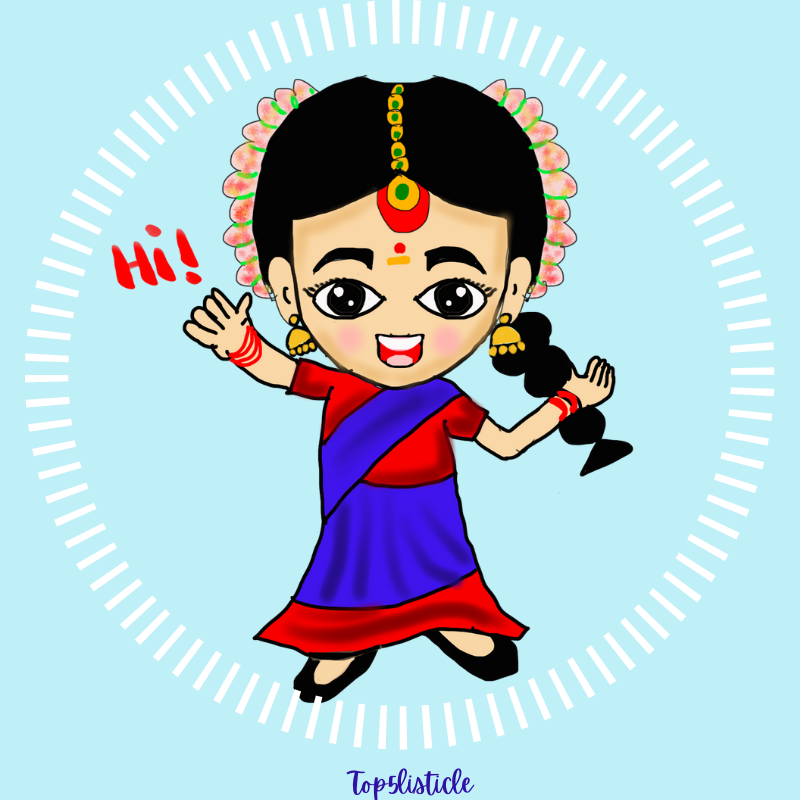
For more Health, Beauty, Fashion and Singapore related content, follow Top5listicle on Pinterest and Instagram.
Shweta Raamanujam, Founder of Top5listicle & T5L Digital
Subscribe to our Youtube Channel for DIY health and beauty videos!
Wish to get featured in our listicles?
Work with us(Award Winning Website) and improve your brand’s presence through our Digital Marketing and Influencer Marketing Expertise.
Check our portfolio here!
Recommended Articles
- Rosemary Oil For Hair Growth Recipe and Benefits
- 7 Best Organic Shampoo For Hair Loss – 2022
- DIY Rice Cream for Korean Glass Skin
- 18 Shocking Benefits of Aliv/Golden Cress/Halim Seeds On Your Body



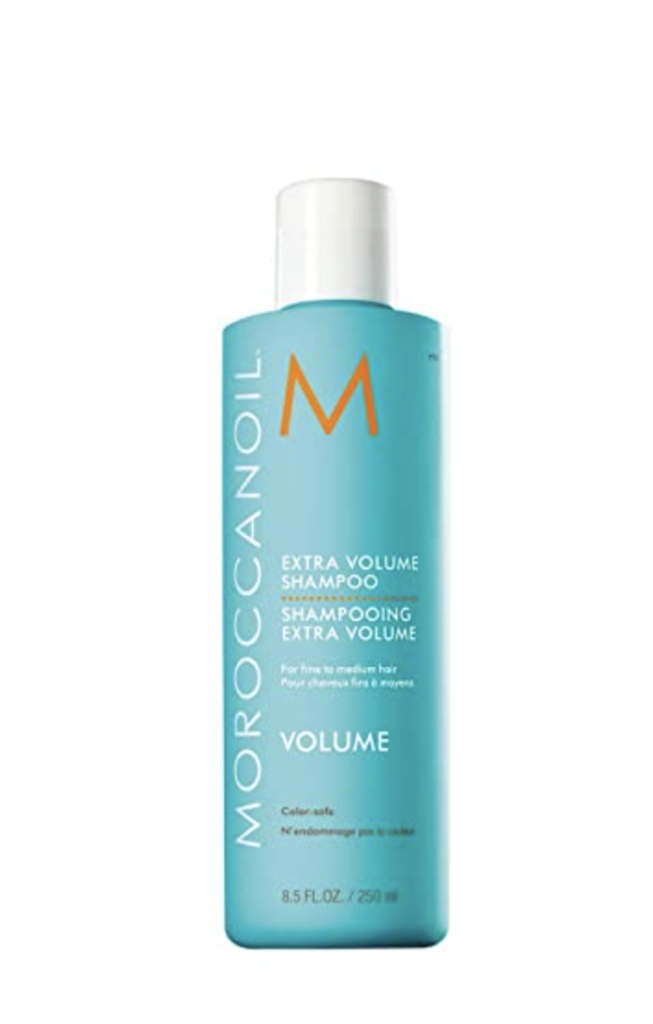


oh wow, now i know! tks for sharing
Great information !! Now I totally understand and how to choose shampoo.!
Now I know why! Thanks for the tips & recommendations!
Great info shared here
This is interesting
This is such an informative article to read!
This is useful and good
Thanks for sharing this
Thanks for sharing
So much detail information..gonna wait for next update
Good to know this!
Nice information wait for next
So much details! How nice
So manu useful information shared! Nice
love the article here❤️
this is really informative
Happy to know more information
So helpful for me
Gonna share it with my friends
Very interesting knowledge to know
Great to know this information
I have same problem like this. Good to know this
I’m gonna try all this tips
Thank for all the great tips
Now I know how to take care of my tress now lovely information you have shared and thank you ☺️
Interesting article, nice tips!
Useful article. I use argan oil too
Wow thanks for sharing
Lovely article shall try it!
Thank you for the wonderful advice and tips about haircare
I have greasy and oil hair too sometimes, thank you for the tips
Very useful and informative article! Thanks for sharing these 🙂
I love to use argan oil too. Thanks for the great tips!